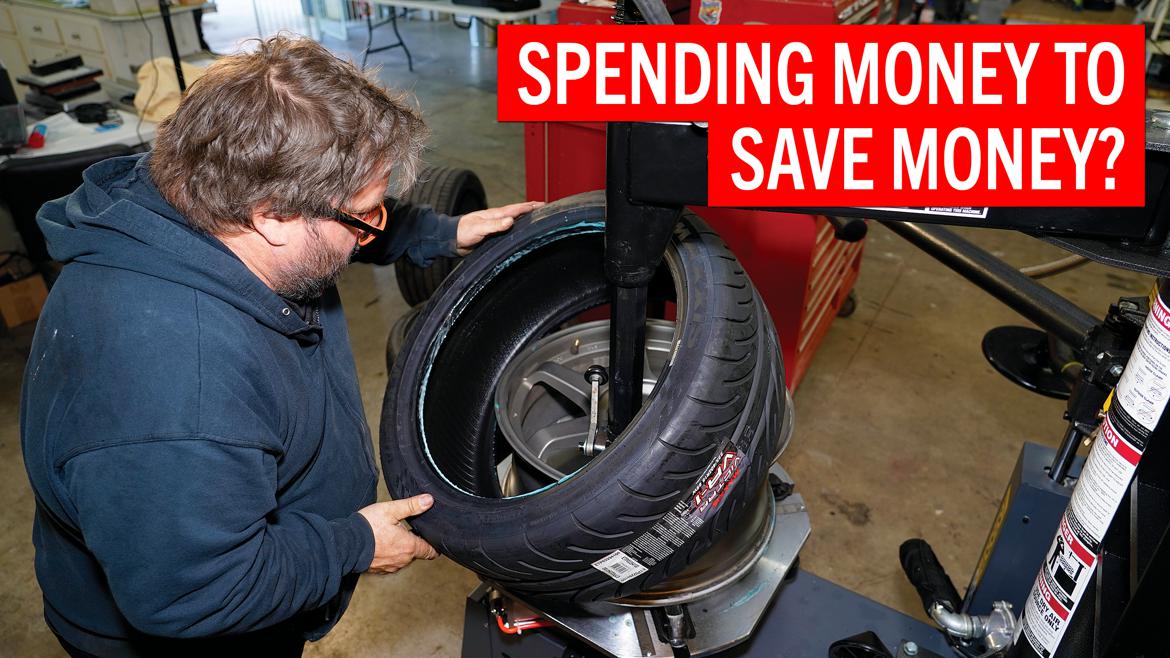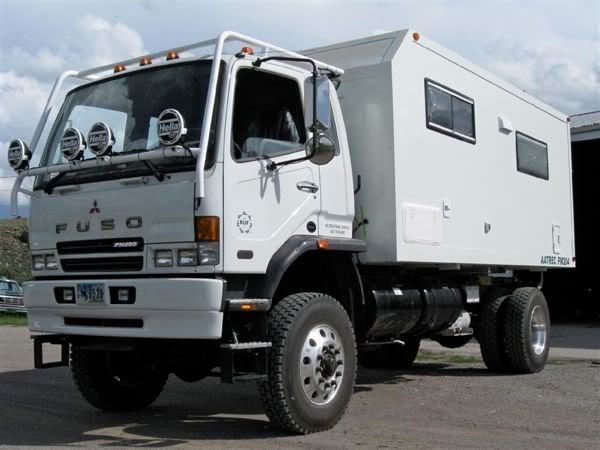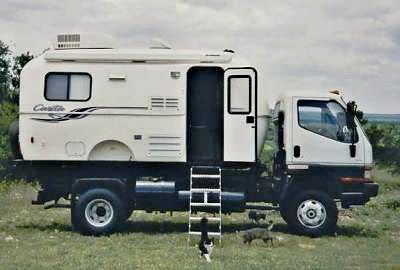Mike wrote:
* Composting toilet
To each their own. I have never experienced and "odor-free" toilet being anything of the sort.
* Enough tank and power to support a couple days boondocking
Not difficult, just tends to be a bit expensive if you are trying to buy an RV tank. Any suitable water tank will do. Find one that fits. Depending on the vehicle, consider mounting it up high with a fill port down low. That way it not only avoide consuming floor space, you won't need a pump unless you plan on showering.
Power is conundrum. Solar won't do much good for two reasons: 1) its quite possible that many of your camping spots will be very shaded, and 2) limited real estate for adequate wattage even in bright sun. I would suggest a bank of 4 deep cycle batteries and a small quiet generator, like one of the super-quiet Honda 1000w units. The engine should also have a good adequate alternator on an isolated solenoid. I rigged one up with a three way switch that allowed the coach and van batteries to be always isolated, always connected, or connected when there is oil pressure + switch on. That way you can run the coach dead and still start the engine, and also if the engine battery is dead you can flip a switch and get a jump start from the coach.
For an alternator, find a good (big) alternator that has plenty of amperage (100 or more). Don't use a typical GM 10 or 12si alternator that has been modified for more amperage. Those are designed for thumping stereos and intermittent draw. If you try to put 100 amps through it to charge 4 dead batteries, it will last about 20 minutes.
LED lights will also be your friend. If you want to watch a movie, do it on something like a laptop or iPod. LED TVs still draw pretty hefty amperage with their backlighting.
* Standard shore power/water/sewer connections
Pretty easy plumbing waste pipes. Most of it is typical PVC or ABS pipe with final fittings that are RV-specific. I suggest using Schedule 40 instead of the thin-wall drain pipe. Vibes and twists can split thin wall. Same goes for shore water. I would use an RV fresh water flange, then just plumb it from there. RV Industry standard is PEX and sharkbite fittings. Dead nuts reliable, easy repairs, can take tons of vibes and abuse.
Another not-too expensive addition would be an RV water heater. For boondocking, that means needing propane, but they make them gas/electric so when you do plug in it operates without gas.
For electrical, use stranded wire, not NM-B. Vibes and twists are handled better by the stranded. There are several options you can use as far as 12v/120v, but for your purpose I might suggest primarily 12v. Many LED lights are 12v anyway, and any RV appliances will have 12v capability. My trailer fridge works on 12v, 120v or gas.
RVs like park models and mobile homes are almost entirely 120v because they are nearly always plugged in. Small RVs like pickup campers and pop-ups tend to lean more toward 12v. If you do most things as 120v, you'll need a monster (wasteful) inverter. Conversely, if you built a park model with mostly 12v you'll need a monster (wasteful) converter to take 120v down to DC. So I would suggest an RV fridge (very efficient) that can run on 12v or propane, possibly a propane stove, 12v LED lighting, propane/120v water heater, then the only things you'd need to invert for are things like a microwave. Then you could run the engine to recharge or keep a small generator to recharge.
In short, wire for both; have a breaker box for 120v wired to a 30A cord, and also have a fuse panel for 12v run to all the appliances. From there its up to you on how to supply 12v: You can just have a regulated supply that charges the batteries when you have shore power, and/or just use the engine's alternator or the generator.
Technically, you legally have to have either a physical limit switch when using a generator, or a way to prevent the generator from running when plugged in.
* Range, microwave/convection combo, fridge
Most RV fridges are pretty reliable. I would consider this a must. Inverting 12v to run a 120v fridge will run a battery dead in hours. I wouldn't hesitate using one from a junkyard. There were a few years of Dometic that sucked (circuit boards liked to fry), but most are serviceable and reliable. The microwave will be your big current draw. I would not invert juice for that either. Shore power or generator only.
* Separate shower (a "wet bath" is a total non-starter)
are you planning cold weather? An external shower is super easy to plumb. Put a thing on the outside that lets you hang a shower curtain and shower outside. Some small campers make a bathroom where the whole floor is a shower pan. The whole bathroom is the shower stall. Also made bathroom cleaning really nice. Hose the whole thing down.
* Sleeps two in something approaching a queen bed
I suggest a queen size mattress, then 
* Work/dining chair and table space
Unless you're offroading, any table and chairs will do. Many RVs use a table and chairs that aren't anchored to the floor and they stay in place just fine. I would hit up IKEA and find a table that mounts to the wall and hinges down for more space. Folding chairs also make more space.
I was going to make a secretary for my RV: A book case with a fold-down desk, but the desk part could fold out in two pieces. Fold down one section for a desk, fold out two leaves and its a dining counter. Vertical storage space and a folding dining area.
* Hookups for our electronics in a number of places (phones, tablet and laptop all charge on USB fortunately)
Like I mentioned above, use stranded 14 ga wire and have fun. When I say stranded, I mean the spools of single-conductor THHN. Not single strand NM-B (romex) and not SOOW (extension cord type), but the rigid stranded THHN for all the 120v. 12v can be typical fine-stranded 12v wire.
Has anyone here done something like this?
I have been planning it for years. I want to turn a tractor trailer into an RV
Any pointers to good resources would be appreciated. I think planning it out in depth sounds like a fun project. Any suggestions of good books on RV electrical system design, plumbing design (propane and water) and mechanical engineering/CAD (I have a Mac) would be helpful.
Most of the plumbing and electrical I've already kinda hit in a very remedial way. There isn't too much different from household wiring and plumbing except some materials differences.











































